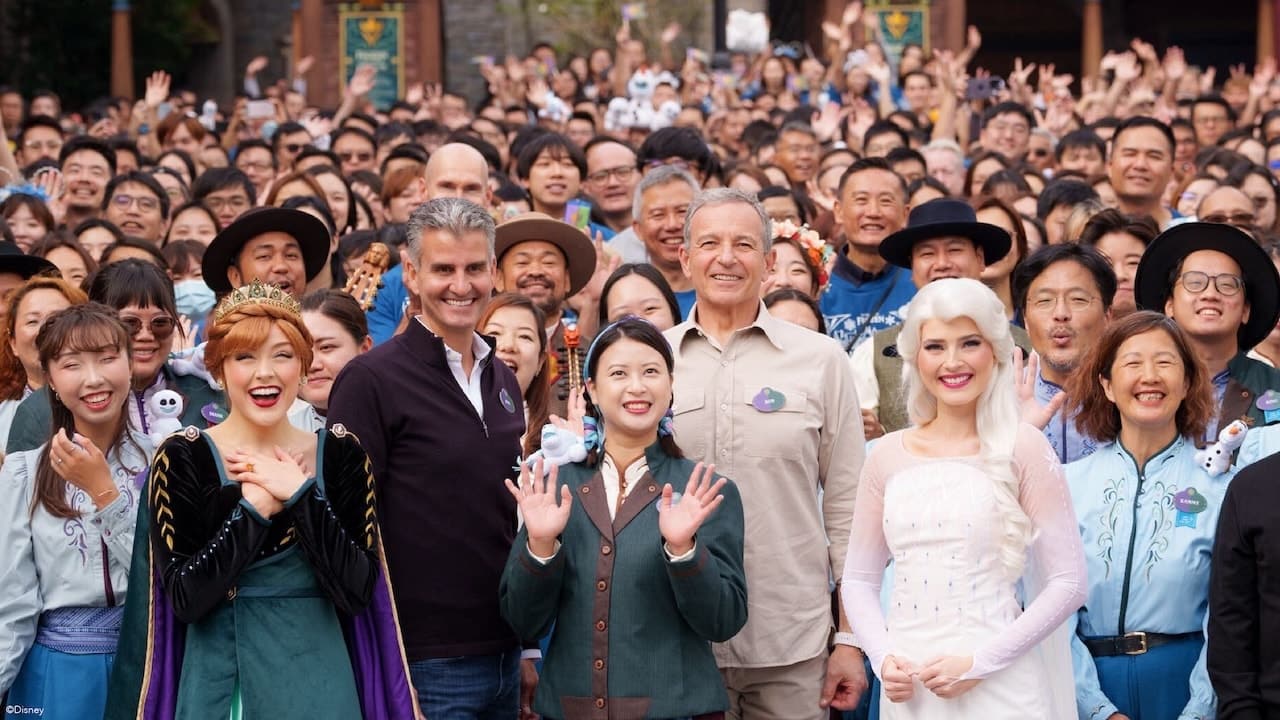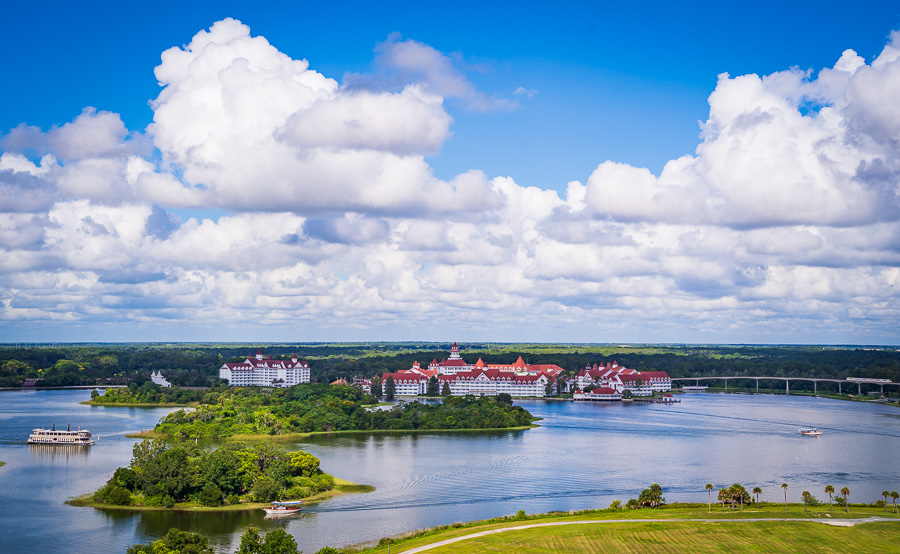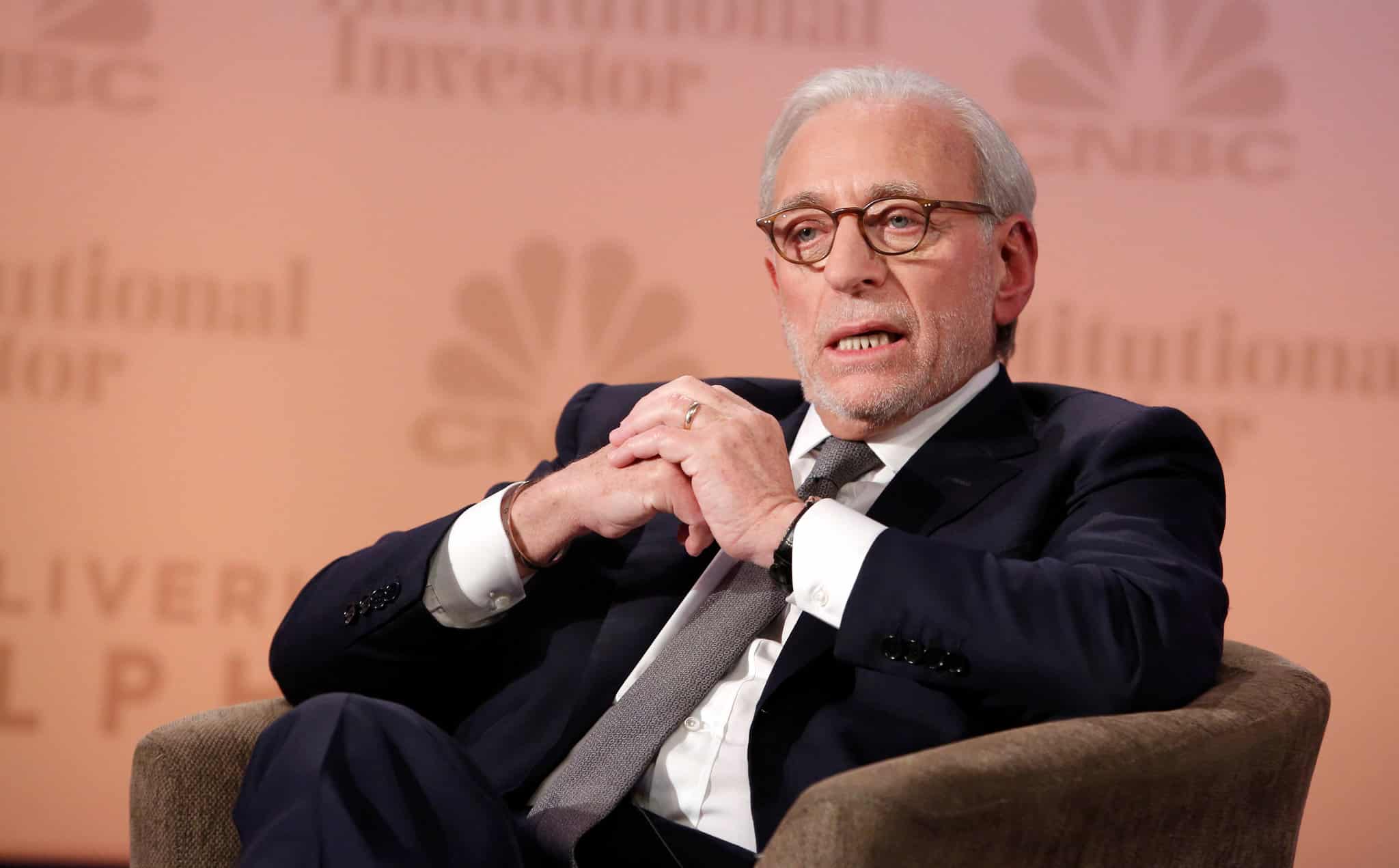New Proxy Fight to Split Disney Into 3 Companies
Blackwells has started yet another proxy fight with Disney, aiming for three nominees on the board supporting transformation efforts under the leadership of the current CEO Bob Iger. These activist investors also suggest a split into three companies, recommend “high alert” towards Trian, and criticize Nelson Peltz’s courtship of Elon Musk. Yeah, it’s a lot.
This comes ahead of the Walt Disney Company’s 2024 Annual Meeting of Shareholders on April 3, 2024, and as all of the various parties prepare for battle, proxy style. For its part, Disney has sent a letter to shareholders pleading its case as to why the current board has the right strategy to drive profitable growth and value creation for shareholders, explaining how they’ve made substantial progress against objectives to make the business more efficient and effective. The company has also launched the website VoteDisney.com, which details how to vote (and not vote) via a fun video by Ludwig von Drake.
Trian Group also has its own website, RestoretheMagic.com, and represents the most viable challenge to Disney thanks to the higher profile of its campaign as well as the number of shares held by Peltz, Trian, and its allies. The fact that Disney has felt the need to fend off the challenge with its own website and leaning on the star power and expertise of Ludwig von Drake suggests the company is taking it seriously.
To be entirely honest, the Blackwells proxy fight likely represents less of a threat. For one thing, Blackwells only owns or controls about $15 million worth of Disney stock, which is probably a lot more than anyone reading this (even our biggest fan, Bob Chapek) but still pretty insignificant in the grand scheme of things. For reference, Trian owns or controls about $3 billion worth of shares, including Peltz and those owned by former Marvel chairman Ike Perlmutter.
The latest development is that Blackwells Capital officially filed its definitive proxy statement with the SEC, which put forth its three nominees to Disney’s Board of Directors: Jessica Schell, a former Warner Bros. and NBCUniversal executive; Tribeca Film Festival co-founder Craig Hatkoff; and TaskRabbit founder Leah Solivan.
More interesting than these three rival slates of nominees for Disney’s board and the SEC filing is the letter Blackwells Capital sent to fellow shareholders soliciting votes.
Unlike Trian, which has taken a more adversarial approach, Blackwells Capital is mostly pro-Disney and Bob Iger. Of course, it is a proxy fight, so Blackwells and Disney are at-odds as to the three aforementioned board nominees. Nevertheless, Blackwells indicates that its three nominees for the board pledge to “continue to support Disney’s transformation efforts under the leadership of the current Board and CEO, Robert A. Iger.”
Blackwells promises “an approach of constructive collaboration,” and indicates that its nominees bring unique skills, expertise and perspectives. They also contend that the future of Disney depends on the following:
- Media and Content
- Real Estate and Strategic Asset Review
- Disney’s Physical, Spatial Computing, and AI-Driven Experiences
The first of these is Disney’s storied “content engine” that has made it the preeminent media company in the world. This is the least interesting part of the letter, but it is worth noting that Blackwells challenges the current board’s lack of media expertise (only two non-executive directors on a board of twelve have significant media experience), and for this reason, they put forward Jessica Schell, one of America’s preeminent experts in content monetization who has 20 years of experience at Warners, NBC Universal, and Disney.
More interesting is the portion about real estate. In case it’s not immediately obvious, real estate refers primarily to the Parks & Resorts division. Presumably, Blackwells is calling it “real estate” because the dude they’re putting forward as a board candidate has real estate experience, but not theme park experience.
According to Blackwells, Disney has an “almost unimaginable portfolio of real estate around the world. The Company owns tens of thousands of acres of land, more than 30,000 of the world’s most profitable hotel rooms, thousands of vacation club units and more. The value of Disney’s real estate holdings is obscured by the Company’s conglomerate structure. But, Disney’s real estate is also the potential source of long duration capital to address balance sheet and income statement challenges and opportunities.”
Per Blackwells, if Disney separated its owned real estate (Parks & Resorts division), it would represent approximately 44% of Disney’s market cap. I’m not exactly sure of how they arrived at this number, but it’s presented alongside a graph and a few footnotes, which means it’s gotta be legit and unassailable.
Their guy is Craig Hatkoff, who could evaluate and implement “a unique world class hotel and hospitality real estate investment trust” (or an REIT). As far as expertise goes, Mr. Hatkoff has been an independent director of Manhattan’s largest office landlord. Okay, say no more, this is the guy I want running the world’s preeminent Parks & Resorts portfolio. What’s the difference between Rise of the Resistance and a high rise, right?
Per Blackwells: “Mr. Hatkoff’s substantial expertise extends to exploring all strategic possibilities with cold eyes, including the potential separation of Disney into three entities, beginning with a management reorganization and leadership selection for each business and resulting in standalone public companies. Disney may simply be too complex for any one successor to Mr. Iger to manage holistically, and Blackwells believes that it is the responsibility of the Board to oversee these types of analyses in the ordinary course.”
Joking aside, we often express frustration about how Walt Disney World is the cash cow that finances the company’s forays and follies into other endeavors, and is milked when said projects operate at a loss. Disney+ has been a particularly sore subject around here, due to the debt to launch and grow that streaming service (including the Fox acquisition, which would not have happened but for Disney’s aspirations to be the next Netflix) coupled with quarterly losses. If it weren’t for Disney+ and Hulu, we’d probably have construction on that $17 billion worth of Walt Disney World expansion by now.
Nevertheless, and I’m no expert, but it seems incredibly reductive to view Disney’s Parks & Resorts through the same lens as commercial real estate in Manhattan. Sure, I sometimes daydream of a setup where Disney doesn’t operate the parks but can hold them to higher standards than they themselves operate (see OLC), but that’s one of those grass is always greener kinda deals.
In reality, synergy is valuable as is the company’s flywheel. Stated differently, a big part of the value of Disney’s real estate holdings is derived from the 100 year catalog of characters and movies and other intellectual property. There is no Walt Disney World without everyone from Mickey Mouse to Merida, and no one is paying $800 per night to stay at the Grand Floridian if it’s on just another piece of real estate in Central Florida. C’mon now.
Even if you could, somehow, separate the real estate out and put it into an REIT, how does that work? What do licensing and operating agreements look like? What about any number of other variables that distinguish the Parks & Resorts division from regular ole commercial real estate? There’s a reason “Hollywood accounting” is a thing, and I suspect that pales in comparison to “theme park accounting.” Even as an absolute amateur and outsider, this just strikes me as complete nonsense.
The final “opportunity” is in the AR/VR space. On that, Blackwells contends that Disney is uniquely situated given its breadth of media content: “Imagine a Disney World where you could have a lightsaber spar with a Jedi on Tatooine, or team-up with Simba and traverse the African plains!”
Blackwells contends that Disney “must be more focused on this once in a lifetime shift in consumer behaviour and interaction.” They then proceed to explain how their nominee is perfect because, I kid you not, she has “built her career on imagining, and creating.” Dang, if only Disney had a group focused on imagining. They could even call themselves the “Imaginators.” Maybe add Walt’s name to give it more gravitas: Walt Disney Imaginatoring. Nah, it’ll never work.
Again, joking aside, this strikes me as attempting to capitalize on the current “it” thing. There’s a lot of froth around AI/AR/VR, and I wouldn’t be surprised if they end up being big and paradigm-changing. But I absolutely do not want to see Disney chasing these emerging tech trends. For one thing (say it with me), Disney is not a tech company. If these investors really understood Disney, they would know this. For another thing, Disney is still recovering from their big bet on streaming, a gamble that invited all of these proxy fights in the first place. And streaming was much more of a sure thing–a logical extension of Disney’s existing businesses!
Look, I think AR/VR could go either way. I’m not immediately dismissive of it, but I do have healthy skepticism. Regardless of my personal feelings, Disney is absolutely in no position to be a leader on it. Partnering with Apple and Meta is absolutely the correct call (I’m guessing that Apple gave Disney a sweetheart deal to develop for Vision Pro at launch), rather than throwing billions of dollars at this every single quarter in a gamble that may (or may not!) amount to anything at a time when the company does not have billions in free cash to invest in the proven thing, Parks & Resorts.
Finally, in another amusing section, titled “The Trian Distraction,” Blackwells goes after Nelson Peltz and friends: “We urge our fellow shareholders to be on high alert with respect to Trian’s campaign and its two nominees, Nelson Peltz and Jay Rasulo. Mr. Peltz has requested a seat on Disney’s Board no less than 24 times in the last year and half. During that time, Mr. Peltz has not offered a single strategic idea that would benefit shareholders. Mr. Rasulo also lacks the relevant skills and expertise that we firmly believe Disney could use additional support with. Begging for Board seats is not a strategy that will make any money for shareholders.” Brutal.
Elsewhere, Blackwells takes another dig and Peltz and his new pal, Elon Musk: “The Trian nominees, for their part, are uninspiring; Mr. Rasulo is a former Disney employee who plainly lacks relevant expertise. Mr. Peltz has spent the last two years begging Disney for a Board seat, and seems to focus his efforts on soliciting endorsements from Elon Musk- who doesn’t own a single Disney share, and is aggrieved at Disney for withholding advertising dollars from his struggling social media platform. These are not winning strategies for Disney Shareholders.” Ouch.
The only thing I’ll add as to this final point is that I’d expect to see headlines involving Elon Musk and Disney in the news for a bit, as he clearly has an axe to grind. The only part of this that’s theoretically relevant for our purposes is whether Musk can or will take a meaningful stake in Disney. It’s exceedingly unlikely. Although he is currently jockeying with Jeff Bezos for the #2 spot on the Forbes Billionaires List, most of Musk’s net worth is non-liquid.
Musk would have to sell a lot of Tesla shares to make it happen–stock that is currently down 25% year-to-date (meaning it’s an inopportune time). Selling and fixating on a new distraction would not be good for Tesla or his desire for more control over it. I’m not saying acquisition of a meaningful stake in Disney won’t happen, because we’ve been down this road before. He seems like the type to do things out of spite or prove the haters wrong, but it’s still not something worth spilling much digital ink over at this point.
Ultimately, the new proxy challenge by Blackwells is somehow even less appealing to me even though it purports to be less antagonistic and more amenable to Bob Iger’s leadership and vision for the future of the Walt Disney Company. While I do think there’s a beneficial way to spin-off Parks & Resorts so it isn’t constantly funding the losses of other divisions, that’s one of those academic exercises that always ends better in fans’ heads than it probably would in reality. And that’s doubly true when it’s being viewed in real estate terms rather than theme park ones.
Then there’s “Disney’s Physical, Spatial Computing, and AI-Driven Experiences.” This is just a bunch of nonsense. It’s the trendy thing to do as c-suites and investors see the success of the leading AI companies and want a taste of that. But FOMO isn’t a business plan, and Disney isn’t a tech company. The power and potential of AI/AR/VR (three different things lumped together) is very real, but the hype around it feels like a few years ago with NFTs (remember those?). To each their own, but I don’t want Disney going down that rabbit hole; partnering with actual tech leaders is the calculated moved given the company’s current financials and core competencies.
Out of all this, the most intriguing thing to me is Jay Rasulo having a board seat. I don’t necessarily want that to happen, but I’m not necessarily averse to it, either. We already discussed a potential reappraisal of the much-reviled Rasulo, and perhaps that’s the wrong call. I don’t know. I do know that I’d like people more receptive to investment in Parks & Resorts, especially if the company is actually going to spend $60 billion over the next decade to expand and enhance Walt Disney World, Disneyland, Disney Cruise Line, and its international theme parks.
Rasulo was there at the start of the last development boom for Walt Disney World, and saw firsthand how mutually beneficial it was for the company’s growth and guests. Otherwise, I’d agree that there isn’t much there there when it comes to the vision that Peltz has articulated for Disney’s future. But at least it has kept Iger and co. on their toes, I guess, and pushed them to move expeditiously in fixing the problems that ail Disney. That probably would’ve happened anyway, though.
Need Disney trip planning tips and comprehensive advice? Make sure to read Disney Parks Vacation Planning Guides, where you can find comprehensive guides to Walt Disney World, Disneyland, and beyond! For Disney updates, discount information, free downloads of our eBooks and wallpapers, and much more, sign up for our FREE email newsletter!
YOUR THOUGHTS
What do you think of Blackwells proxy fight? Agree or disagree with the idea of splitting Disney into three companies? What about the “Restore the Magic” Campaign or Jay Rasulo as a board candidate? Think either of these fights stand a chance of succeeding? Optimistic that this will push Iger to finally get serious about choosing a successor or focus on improving guest satisfaction in the parks? Thoughts on anything else discussed here? Do you agree or disagree with our assessment? Note that neither Disney nor Peltz brought up politics or culture wars in their presentations; as such, all off-topic comments about either will be deleted.







You are correct, this is exhausting. As a shareholder with a significant investment (by my accounts), I continue to see Disney do everything it can to fail. Disney never addresses the elephant in the room. In fact, none of the proxy groups have address the cultural path that Disney continues to endorse. Despite the history of strong family values, Disney continually force feeds its consumers a steady diety of male hating, gender confusion, and sexual choice content. I love people. All people, and I don’t care what you choose to do in your life. However, it is the parents job to raise their children and to explain life to their children as they see fit. Disney is not an institution for learning, and it is not a place of worship, so they should stop teaching and preaching and get back to what you they do best. Creating fun, entertaining, family oriented programming that parents can watch with their kids without fear of something they deem to be inappropriate appearing in front of their children. Disneys agenda in this area has been highly publicized, and yet the current board, or potential board members never even address it. This may not be the only reason for Disney’s struggles, but it is most certainly a contributing factor that needs to be addressed. If they continue to ignore this, I fear that Disney may never fully recover.
I am completely against splitting Disney up…that is the Sears and Toysrus model that failed and slipped into bankruptcy. Iger just needs to admit he is a failure, let Disney clawback his pay/benefit packages the last 10yrs, bring the park facilities up to working order and extend the monorail. Iger and D’Amaro are failures.
*sigh*
I mean, I’m all for selling ESPN/ABC/whatever to another company, so spinning it off into a second entity is fine. Taking Parks & Resorts and “separating it but keeping it under Disney control somehow” won’t actually prevent the company from using those profits to pay for other things; indeed, you hire a real estate guru to tell you what to land to sell! (The only way to actually do that is to say that you’re managing the divisions separately and then do it; you say it so you freak out Wall Street up front and not miss expectations at the quarterly reports.)
Finally, I assume that third bullet point would be talking about the nominees’ experience with cloud computing (good!), the metaverse (*chuckle*) and NFTs (*shudder*) if it wasn’t 2024.
every hedge fund bro deserves testicular cancer
Look, I’m not saying Josh D’Amaro looks a hell of a lot like Eddie Munster in that group photo.
But I’m not saying he doesn’t.
As someone who worked for a great company that was taken over by Peltz and his saboteurs and then desstroyed by splitting it into pieces, it would be a crying shame to let him ruin Disney. Yes, Disney has had a few rough years, but Pelrz has no creativity or imagination other than how to destroy. He is nothing more than a pale skinned Darth Vader. Letting him take over Disney would not result in a better company,. Instead it would be one with fewer resources.focused not on growth but rather on contraction.
I haven’t read the letter or proposal – just the summary and headlines (and this is the most detailed one I’ve read). It seems their statement about the third company (the AI/AR/VR one) also makes less sense given the whole idea of splitting the company up: their talking about using the tech from this new publicly traded company (the Disney Tech company, let’s call it) inside of another publicly traded company that’s a REIT (Disney World) utilizing IP owned by another separate publicly-traded company (Disney Media). That seems . . . simplified ????
The minute I heard them talk about Disney’s vast real estate holdings, I thought of all the “genius” MBAs who take successful retail or restaurant businesses that happen to own their own buildings, and split them into two separate companies: one that owns the land, and the actual retail/restaurant business that now rents space in their own stores–which leads to disaster the moment there’s a downturn and the business has trouble making rent on the building they once owned. It’s classic short-term thinking, which seems to be all modern MBAs can do these days. I shudder to think of a similar scenario playing out with Disney–hard pass.
Nicely put.
“Disney is not a tech company” – seems Michael Eisner tried this route and failed miserably. Anyone remember Go.com?
The AI/VR proposal speaks directly to Cory Doctorow’s Down and Out in the Magic Kingdom, an absolute nightmare of a speculative fiction book that horrifies me to this day. And I agree that an REIT makes no sense, and I’d be afraid of money being taken away from Parks to fund more multi-million-dollar estates like Golden Oaks. The only part of this proxy that makes sense is having a bit more media expertise on the Board.
Boeing split off part of their company to become “Spirit AeroSystems”. Didn’t help them, since now they’ve infamously got pieces of plane fuselage inappropriately splitting off during flight. These grand plans for Disney, as presented by dubious outsiders, don’t sound any better than what Boeing tried.
Disney has tried hard to be a tech company with its significant investments in MagicBands, Disney+, and Hulu. They also were interested in Twitter. They sure seem to want to be a tech company but haven’t quite succeeded. It it because they aren’t one/can’t be one or if they have had failed leadership who doesn’t understand tech? It’s an interesting question that needs to be solved for the company to move forward. Also, I am surprised they aren’t dumping ESPN and think partnering with Fox and Warner is smart. They already tried something similar with Hulu and it didn’t really work.
I do think these challenges will force Iger to lay out a public successor(s) and definitive timeline. I also think that strategising over counter-arguments to these proxy challenges must be exhausting. Considering these and the recent Florida government vs Disney battles, the next CEO(s) will likely have commensurately less and less time to devote to Parks and Recreation matters than prior leaders.
“…the next CEO(s) will likely have commensurately less and less time to devote to Parks and Recreation matters than prior leaders.”
Who knows how things will play out, but I hope to disagree with this.
An inordinate amount of Iger’s energy and Disney’s money is currently being devoted to a transformational shift in legacy media. That should be resolved within the next 2 years.
More of Iger’s time is being spent on dealing with various other battles, one of which is the Florida situation. But DeSantis is term limited, so he’s gone in January 2027. Between a new governor and a new CEO, the very obvious path is a repaired relationship. It would make both parties look good and is an easy path to early success.
Obviously, those are early and optimistic assumptions, but I think the next CEO faces fewer challenges than Iger, not more. That won’t be the case if Disney decides to bump billions of dollars in AI/AR/VR, or whatever the next big thing is, though.
You are correct, this is exhausting. As a shareholder with a significant investment (by my accounts), I continue to see Disney do everything it can to fail. Disney never addresses the elephant in the room. In fact, none of the proxy groups have address the societal path that Disney continues to endorse. Despite the history of a strong family focus, Disney continually force feeds its consumers a steady diety of male hating, gender confusing, and sexual partner focused content. I love people. All people, and I don’t care what you choose to do in your life. However, it is the parents job to raise their children and to explain life to their children as they see fit. Disney is not an institution for learning, and it is not a place of worship, so stop teaching and preaching and get back to what you do best. Creating fun, entertaining, family oriented programming that parents can watch with their kids without fear of something they deem to be inappropriate appearing in front of their children. Disneys agenda in this area has been highly publicized, and yet the current board, or potential board members never even address it. This may not be the only reason for Disney’s struggles, but it is most certainly a contributing factor that needs to be addressed.
I found your comments about the hotels very interesting. For me, I’ve personally stayed on site, and the good neighbor hotels several times. Every time I do, I’m torn about what the right balance is between hotel amenities and park level entertainment. On the one hand, activities going on at the resort takes away from doing stuff in the park. On the other hand spending time in the park makes me feel I’m not getting my moneys worth out of the room rate if they offer additional services at the hotel.
Blackwell might get an extra seat on the board, but what they are recommending I feel really does not add value to me (the customer) in the long run.
Out of all the idea to quote-unquote “Save Disney” I’ve heard, this is undoubtedly the stupidest. You can’t fix a ship by cutting up its hull.
This is all exhausting and while I agree that the idea of splitting the business into three (or more) separate businesses could never work, I do think “Disney may simply be too complex for any one successor to Mr. Iger to manage holistically” is a true statement. I know it would buck against CEO worship to be more thoughtful about the division of leadership but I find it hard to believe that any potential CEO is well-equipped to hold all of these different branches of the Disney tree together in a thoughtful, forward-thinking way.
Totally agree with that, which is why we’ve been advocating for the (formal) return of Kevin Mayer and Tom Staggs to co-lead Disney or, as an alternative, Dana Walden and Josh D’Amaro.
It worked with Eisner/Wells, so surely it could work again. From the outside, Mayer and Staggs seem the obvious duo since they currently work together and Staggs doesn’t have the personality or ego (thankfully) to be upset being the COO to Mayer’s CEO.
The use of photos in this article is A+! I love the last scene of carousel of progress for their AR/VR vision, about which I am also skeptical.
“cold eyes,” indeed!